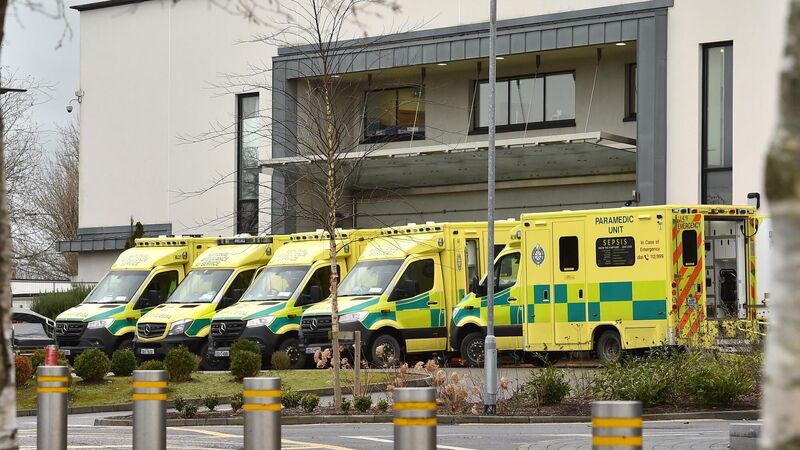INMO: Overcrowding in Cork hospitals is 'out of control'

Ambulances lined up outside the emergency department at the Cork University Hospital. Picture: Dan Linehan
Overcrowding in Cork hospitals is out of control according to the Irish Nurses and Midwives Organisation. The warning was made as the number of Covid patients in hospitals nationally remains extremely high.
The nurses union counted 73 patients waiting on trolleys or chairs for a hospital bed in Cork University Hospital and the Mercy University Hospital. They were among 563 patients nationwide.













